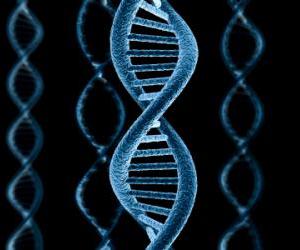
Autism researchers discover genetic 'Rosetta Stone'
Science Daily
Email successfully sent
close windowDistinct sets of genetic defects in a single neuronal protein can lead either to infantile epilepsy or to autism spectrum disorders (ASDs), depending on whether the respective mutations boost the protein's function or sabotage it, according to a new study by UC San Francisco researchers. Tracing how these particular genetic defects lead to more general changes in brain function could unlock fundamental mysteries about how events early in brain development lead to autism, the authors say.
"The genetics of neuropsychiatric disease is often complicated, but here we have a single gene in which specific mutations can cause either infantile seizures or autism in a consistent and predictable manner," said Stephan Sanders, MD, PhD, an assistant professor of psychiatry at UCSF and member of the UCSF Weill Institute for Neurosciences who is co-senior author of the new study. "This gives us an opportunity to understand both what these disorders have in common and what makes them different."
The findings are a first step towards understanding how different subtle changes in neural function in utero could lead to the development of either a seizure-prone brain or an autistic brain in infancy, the authors say. The study also further implicates the gene responsible for these changes -- called SCN2A -- as the single human gene with the strongest evidence for a causal role in driving ASDs.
Related Articles
Couple builds a community for their adult son with autism
Debra Caudy's youngest child, Jon, was diagnosed with moderate to severe autism when he was four years old, a ..
Donald Trump will be a disaster for autistic people
Donald Trump has never been a fan of disabled people. He's got an obsession with the appearance of being "weak ..
Autism Speaks no longer searching for a "cure" for autism
Autism Speaks, a leading autism advocacy group in the U.S., has quietly made a small but potentially meaningfu ..

